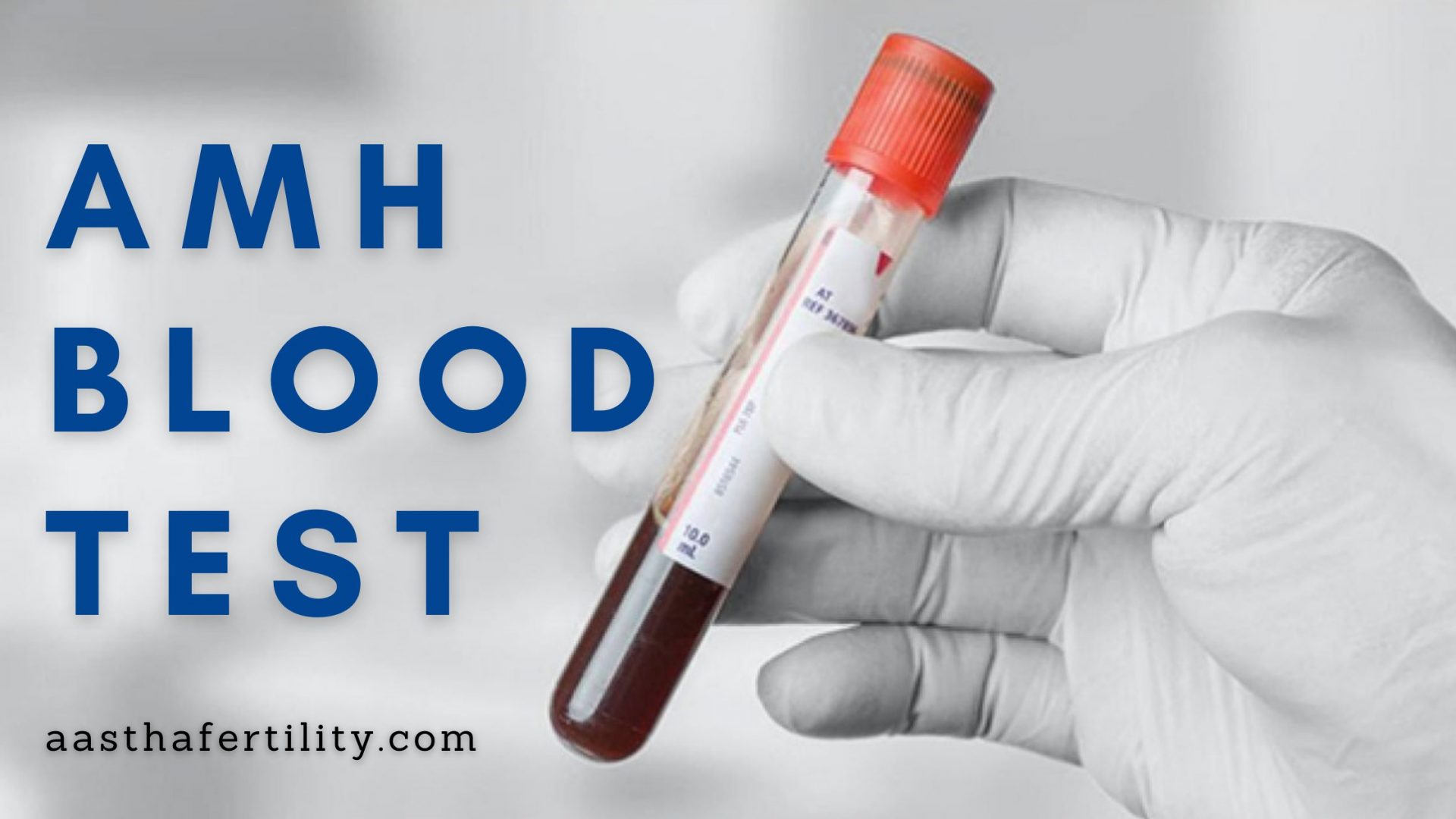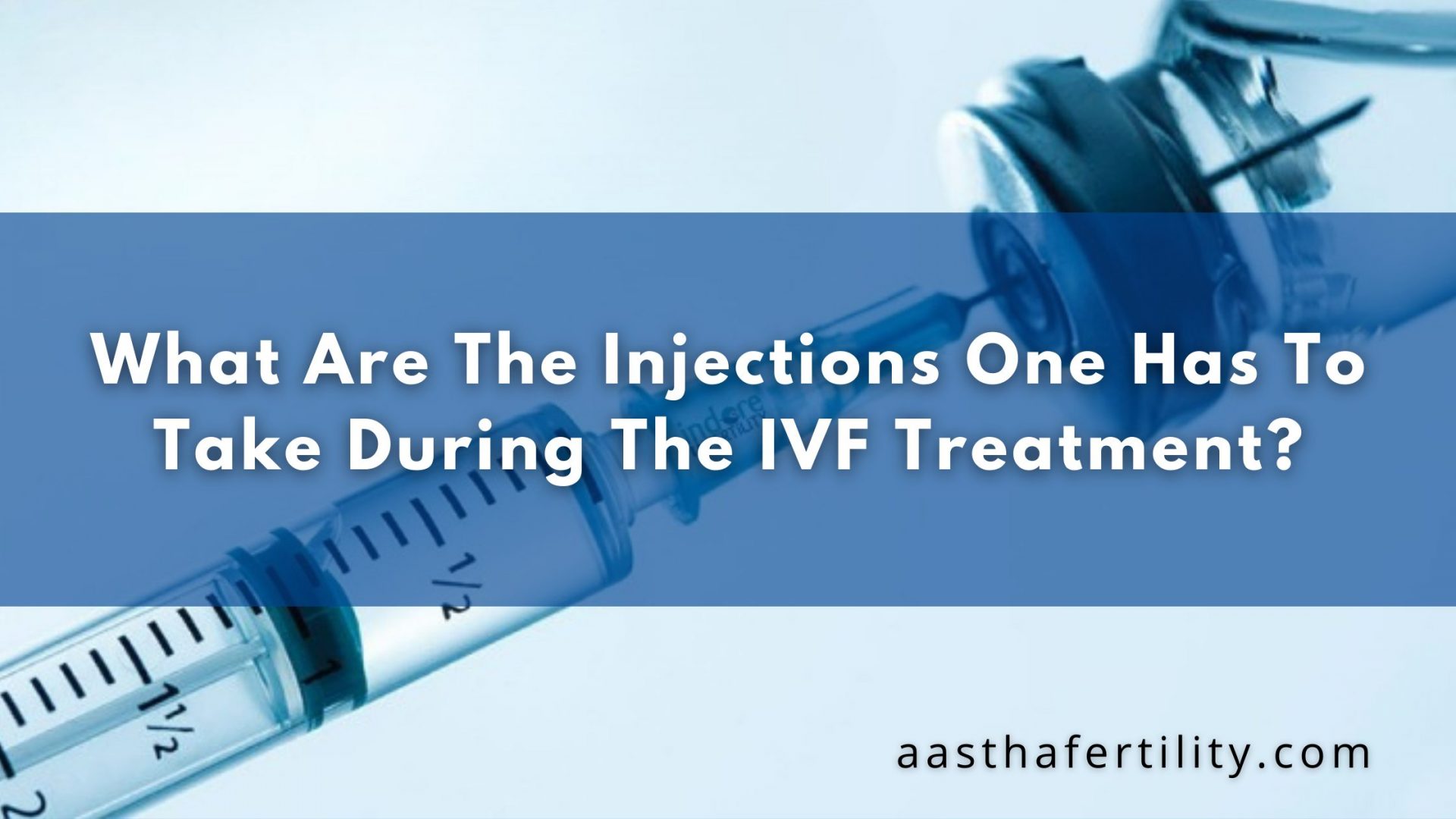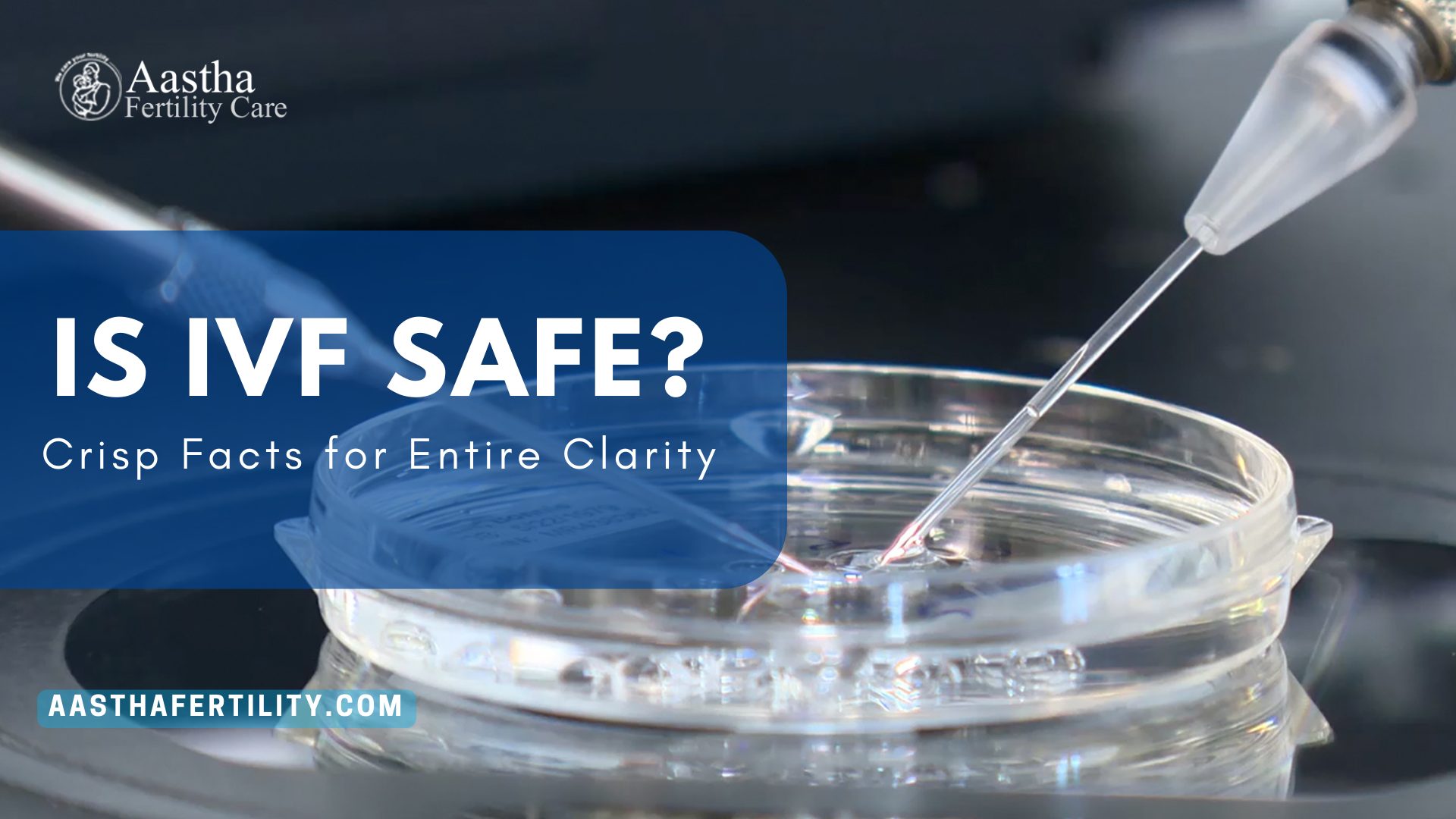Table of Contents
ToggleThe patient’s happiness following an effective IVF procedure is frequently an important aspect of the in vitro fertilisation process. But, they still worry about getting pregnant even when the IVF procedure is successful. Despite receiving positive results from a blood pregnancy test at the doctor’s office, the pair might still have some concerns.
The reason is that they faced challenges with infertility. So, they often wish to confirm that their IVF process, to which they devoted time, money, and psychological energy, will be effective before they begin their path towards parenting.
Aastha Fertility Care can clear the doubts of such couples and individuals and help them learn After How Many Weeks IVF Pregnancy Is Safe.
After How Many Weeks Is IVF Pregnancy Safe?
The safety of an IVF pregnancy depends on various factors, including the age and health of the mother, any underlying medical conditions, and the progression of the pregnancy. The first 12 weeks of pregnancy are typically considered critical as the baby’s major organs and systems develop during this period. Consequently, the risk of miscarriage or other complications may be higher.
However, with proper medical care and monitoring, many IVF pregnancies progress safely beyond the 12-week mark. Healthcare providers can provide personalised advice and guidance on how to ensure the safety of the pregnancy while minimising any risks. Discussing any concerns with a healthcare provider is essential to achieve the best possible outcome for both the mother and baby.
Factors that Determine IVF Pregnancy Safety
There are several factors that determine the safety of pregnancy through in vitro fertilization (IVF):
Age of the Mother
In vitro fertilisation (IVF) pregnancy safety is greatly influenced by the mother’s age. According to the female ageing and reproductive outcome report by the National Institute of Health, women under 30 have had the best IVF outcomes. The treatment is less successful for females more than 35, and they are also at greater risk of developing stillbirth, miscarriage, low birth weight, premature delivery, and other complications of pregnancy.
Besides, many pregnancy-related issues, such as gestational diabetes, preeclampsia, and others, are more common among females over 35. However, close monitoring and medical assessment may ensure safety and identify the possible risks before undergoing IVF treatment.
Number of Embryos Transferred
The embryo grading used in IVF is a key factor in deciding pregnancy safety. Multiple embryo transfers raise the possibility of multiple pregnancies, which can result in preeclampsia, preterm delivery, low birth weight, and many other complications. Fewer embryo transfers might lower the likelihood of a successful birth.
Therefore, many fertility centres nowadays use the Single Embryo Transfer (SET) technique that reduces the risk and optimises the safety and success of pregnancy.
Quality of Embryos
High-quality embryos are more likely to implant successfully, resulting in a safe pregnancy. Mother’s health, age, and laboratory conditions are all factors that can influence the quality of the embryo. Embryos are evaluated according to their appearance and developmental stage during IVF. Besides, the best ones are chosen for transfer.
PGT or Pre-implantation genetic testing procedure could be used to identify the embryo’s genetic abnormalities before transferring. It lowers the inherited diseases risk and raises the IVF therapy’s success rate.
Medical History of The Mother and Other Health Conditions
Pregnancy difficulties are sometimes brought on by illnesses such as hypertension, thyroid problems, diabetes, and autoimmune diseases. When preceding the IVF process, it is essential to recognise and address any current health conditions.
You must inform your fertility expert and obstetrician because some medications for certain illnesses may interfere with or affect the fertility process.
When Is IVF Pregnancy Considered Safe?
Here we will talk about the circumstances under which a pregnancy achieved through in vitro fertilization (IVF) is considered safe:
Weeks of Gestation
The IVF pregnancy is impacted by the weeks of gestation. Pregnancy at full gestation lasts within 37 to 42 weeks. But some difficulties may be more common in IVF pregnancies, including low birth weight, developmental issues, and preterm labour.
These complications risk could be increased by transferred embryos’ quantity, maternal age, and medical background. Careful monitoring of IVF pregnancies is crucial, along with adequate prenatal care.
Foetal Development and Viability
Foetal development and viability are crucial in determining whether in vitro fertilisation (IVF) is secure. Even though IVF is a safe process of conceiving, a few things can affect how safe the process is for the growing foetus. Gestational age is among these indicators since complications are more likely to occur in early pregnancies.
The miscarriage risk substantially declines after twelve weeks of pregnancy. The mother’s medical history, age, and general health must be considered when deciding the IVF pregnancy safety.
Success Rates of IVF
When evaluating the in vitro fertilisation or IVF pregnancy safety, success rates should be taken into account. These rates may be impacted by the mother’s age, medical background, and health. Although transferring multiple embryos may raise the risk of complications, young females have high success rates.
Risks Associated With IVF Pregnancy
There are various risks that are associated with pregnancies resulting from in vitro fertilization (IVF):
Preterm Delivery
Preterm birth is more likely in IVF pregnancies than in normally conceived pregnancies. Giving birth prematurely may contribute to higher medical costs and many health issues. Although the root causes for the elevated risk are not fully known, they could be associated with IVF treatments or infertility processes.
Low Birth Weight
A pregnancy resulting from in vitro fertilisation (IVF) carries a low birth weight risk. Infant mortality, chronic health problems eventually, and developmental delays are among the factors linked to low birth weight.
Although the causes of the elevated risk are unclear, they could be connected to infertility, multiple pregnancies, or IVF treatments.
Congenital Disabilities
Congenital disabilities are more likely to occur during an IVF pregnancy than a normal pregnancy. Spina bifida and Down syndrome are a few congenital disabilities that may impact the growth of the foetus and the body’s function or structure.
Miscarriage
The miscarriage risk is slightly greater with the IVF process than with natural pregnancy. A miscarriage is a premature pregnancy loss and can happen for various reasons. Although the causes of the increased chance of miscarriage risks in IVF pregnancy are unclear, they could be connected to the IVF process or infertility.
Multiple Pregnancy
Multiple pregnancies are more likely with IVF, which carries many dangers. Increased risks in such pregnancies, including higher-order multiples or twins, raise the mother’s chance of developing health issues.
Ovarian Hyperstimulation Syndrome (OHSS)
Although uncommon, ovarian hyperstimulation syndrome (OHSS) risk can be very serious. While the ovaries respond to fertility drugs, OHSS happens because of an unexpected rise in follicles and eggs generated. The symptoms, which include abdominal bloating, breath shortness, nausea, and vomiting, can be mild to serious.
Ectopic Pregnancy
Ectopic pregnancy, in which a fertilised egg implants on the uterus outside, typically in the fallopian tube, is an IVF pregnancy risk. It may result in tube rupture, and extreme bleeding is a potentially fatal complication. Because of the potential for tubal injury throughout the previous tubal surgical procedures, IVF carries a higher risk.
People planning for IVF should speak with their doctor about any of the above risks that may occur during pregnancy, delivery, or after the birth of a child.
Tips for A Healthy IVF Pregnancy
Some tips for having a healthy pregnancy after undergoing in vitro fertilization (IVF):
Prenatal Care And Monitoring
Adequate prenatal treatment and tracking are essential for a healthy IVF pregnancy. The baby’s growth will be monitored regularly at the doctor’s office, allowing any possible problems to be dealt with immediately.
Proper Nutrition And Exercise
A healthy pregnancy depends on eating a nutritious, well-balanced IVF diet with foods high in vitamins and minerals. Physical and mental well-being could also be achieved through moderate exercise.
Avoiding Risky Behaviours and Substances
The growing foetus and mother may suffer consequences from drinking, drugs, and smoking. It is crucial to avoid these substances while pregnant to reduce complications.
Managing Stress and Anxiety
A healthy IVF pregnancy could be negatively impacted by stress and worry. Women who are stressed out can reduce it by practising meditation, yoga, and other relaxation techniques.
Conclusion
IVF pregnancies are considered secure once the first trimester persists for approximately twelve weeks. However, there might be exceptions because IVF pregnancy safety relies on many variables, including the mother’s age, medical history, and underlying conditions. Females must receive the proper prenatal monitoring and care to guarantee the foetus’s health. A healthy diet, abstaining from harmful drugs, stress management, and moderate exercise are some of the strategies that can be used to ensure a healthy pregnancy. Contacting Aastha Fertility can improve their odds of a healthy and risk-free IVF pregnancy by seeking their advice.





Leave a comment